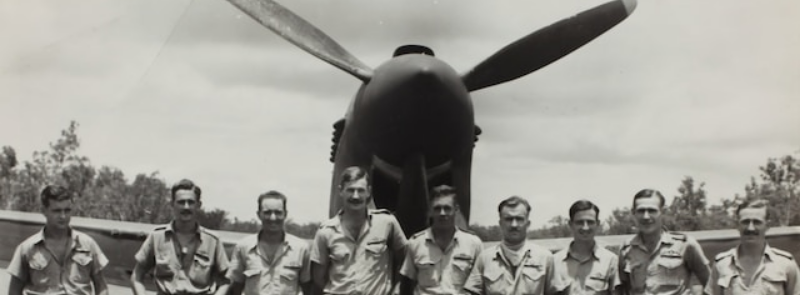
When It Occurs
Every May 8th
Timeline
Days Passed (1021)
# Hashtags
#VEDay #VictoryInEuropeDay
May 8th is commemorated as Victory in Europe Day, or V-E Day, marking the conclusion of World War II in Europe. The pivotal moment leading to this celebration occurred on May 7, 1945, when German emissaries surrendered to General Eisenhower's Headquarters in Reims, France. The subsequent day, May 8, was officially designated as V-E Day.
Historical Background of VE Day
On May 8, 1945, British Prime Minister Winston Churchill announced that Nazi Germany had surrendered, bringing an end to six years of devastating conflict in Europe. The news of the surrender came a day after Adolf Hitler's successor, Admiral Karl Dönitz, signed the act of military surrender on May 7, 1945, in Reims, France. This marked the defeat of the Third Reich and the end of World War II in Europe, although the war continued in the Pacific until Japan's surrender in August 1945.
Churchill's broadcast to the nation informed the British public that the war in Europe was finally over, leading to spontaneous street parties and widespread jubilation across the United Kingdom.
How VE Day is Celebrated in the United Kingdom
VE Day is marked by a combination of remembrance and celebration, with events reflecting both the joy of the end of the war and the solemnity of remembering those who sacrificed their lives. Key elements of the celebrations include:
1. Remembrance Services
Throughout the UK, remembrance services are held on VE Day to honor the millions of soldiers, sailors, airmen, and civilians who lost their lives or were affected by the war. Wreaths are laid at war memorials, and moments of silence are observed to reflect on the profound loss and sacrifices made by the British armed forces and their allies.
The most notable service takes place at The Cenotaph in London, where national leaders, military officials, and members of the public pay their respects. In addition, services are held in local communities across the UK.
2. Churchill’s Speech Replays
A key tradition on VE Day is the replaying of Winston Churchill’s famous victory speech, which he delivered from Downing Street on May 8, 1945. Churchill’s speech, in which he declared, "We may allow ourselves a brief period of rejoicing," is broadcast on radio and television, reminding the nation of the relief and optimism felt at the end of the war.
3. Street Parties and Celebrations
During the original VE Day in 1945, the streets of Britain erupted into spontaneous celebrations. Today, many communities revive this spirit with street parties, where people gather to share food, music, and memories. Traditional wartime dishes such as coronation chicken, Victoria sponge cake, and other classic British fare are often enjoyed at these events.
In larger towns and cities, special concerts and reenactments are held, with people dressing in 1940s clothing to evoke the era. Performances of wartime songs like "We'll Meet Again" by Vera Lynn are popular during these celebrations.
4. The Two-Minute Silence
At 3:00 PM on VE Day, a two-minute silence is observed across the country. This time of reflection pays tribute to the fallen soldiers and acknowledges the profound impact of the war on families and communities throughout the United Kingdom. It serves as a moment to honor the resilience and courage of the wartime generation.
5. Television Broadcasts and Documentaries
Television channels in the UK often broadcast historical documentaries and footage from 1945 to mark VE Day. These programs offer insight into the experiences of those who lived through the war, including interviews with veterans, archival footage, and reports on the war's impact on Britain.
6. Military Parades and Flypasts
In some years, military parades and flypasts are organized to mark VE Day. In London, the Royal Air Force (RAF) often conducts commemorative flypasts featuring iconic planes such as the Spitfire and Hurricane fighter aircraft, which played key roles in the Battle of Britain.
VE Day Milestones and Anniversaries
While VE Day is observed every year, major anniversaries of the event are marked with special commemorations. For example, the 75th anniversary in 2020 featured nationwide events, despite restrictions due to the COVID-19 pandemic. On such occasions, members of the Royal Family and political leaders participate in national ceremonies, and special messages are broadcast to the nation.
VE Day’s Significance Today
VE Day remains a significant day of national pride in the UK, serving as a reminder of the end of a brutal conflict that reshaped the world. It allows people to reflect on the resilience, unity, and sacrifice of the wartime generation, and to pass on their stories to future generations. The day also reinforces the importance of peace and the commitment to never forget the lessons of history.
For many, VE Day is personal, as it connects to the stories of grandparents, parents, and other family members who lived through World War II, fought in it, or contributed to the war effort in various ways. It is a day to honor not only the soldiers but also the civilians, including the Women’s Land Army, Home Guard, and factory workers, who contributed to the war effort on the home front.
Conclusion
VE Day is one of the most significant dates in the United Kingdom's history, marking the end of World War II in Europe and symbolizing both the relief of peace and the deep losses endured during the conflict. The celebrations and memorials on this day provide an opportunity for reflection, gratitude, and remembrance, allowing the country to honor the bravery of those who fought and those who sacrificed their lives to protect freedom. VE Day is not just a commemoration of the past but also a reminder of the enduring importance of peace, unity, and resilience in the face of adversity.


